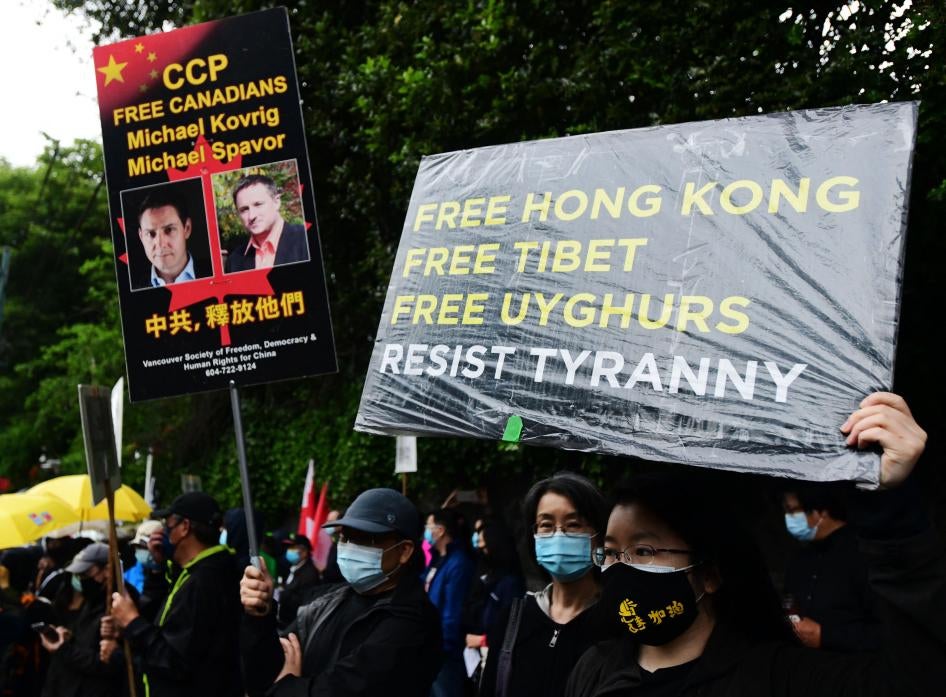This week, Canada’s spy agency briefed Jenny Kwan, a New Democrat MP, about surveillance by the Chinese government, telling her that Beijing considers her an “evergreen” target because she is outspoken about China’s human rights abuses.
Coming out of the briefing, she said, “it is more clear to me than ever that I will not be intimidated, that I will not be silenced in any way.”
It is inspiring to hear a Canadian lawmaker speaking those words with such conviction. But it is up to the Trudeau government to ensure that politicians with platforms and power are not the only ones who can afford to make such pledges. Everyone in Canada should be free to exercise their right to freedom of speech without fear it will be curtailed by a foreign government.
Polls show that the vast majority of Canadians are concerned about the Chinese government’s interference in Canadian society. At the same time, an increasing number of people in the Chinese diaspora want to use their freedom in Canada to speak out against Chinese Communist Party (CCP) human rights violations and to support rights activists inside China. Late last year, Chinese people across major Canadian cities came out in droves to support the “white paper” protests in China against the government’s strict COVID-19 measures and the CCP’s authoritarian rule.
In the past few years, I’ve spoken to many members of the Chinese diaspora in Canada who shared their stories of suspected CCP-linked harassment and intimidation. But more often, the stories were about how their fear of CCP retaliation forced them into self-censorship, and how they felt a sense of powerlessness and shame for “not being brave enough” to stand up to Beijing, even on Canadian soil. Most of them asked me not to use their names for fear of retaliation by Chinese authorities against them or their families in China.
“I am extremely careful,” said a man from mainland China who moved to Richmond, B.C., with his family less than a year ago. “Any protests I attended, I wore a mask. I did not talk to people. I just showed up quietly.” He said he only attended off-campus protests, not on the campus where he is currently studying, because “the risk of on-campus activities is too high, (it’s) very easy to be located and identified.”
Four years ago, Human Rights Watch called on the Canadian government to monitor and actively respond to Chinese government-backed harassment and intimidation, and argued that “a failure to address the problem will only allow it to spread.”
This, unfortunately, is what happened. The government’s lack of robust action only emboldened Beijing to double down on its threats, escalating now to sitting MPs.
The detention of Canadians Michael Kovrig and Michael Spavor in 2018 in response to Canada’s arrest of Huawei executive Meng Wanzhou shook the Canadian public, but China’s long arm has long been most keenly felt by its diaspora. Chinese, Uyghur and Hong Kong activists in Canada have repeatedly urged the Trudeau government to investigate the CCP’s transnational repression in Canada, but the efforts have largely been ignored.
“Every time we spoke to the government, it felt like we were putting on a show and helping them tick off a box that they were hearing from critics,” a Hong Kong activist told the Toronto Star in March, “Nothing was done.”
Chinese diaspora members told me that they either did not know how to report incidents of suspected CCP-linked harassment and intimidation to Canadian authorities or they believed reporting them wouldn’t be useful.
Much of that trepidation and doubt felt by many in the Chinese diaspora hasn’t changed in the past few years. But what has changed is even more disillusionment with the CCP and the desire to speak their minds freely. This is largely due to the deteriorating human rights situation in China, marked by two watershed events that hit the majority Han Chinese people directly: President Xi Jinping handed himself an unprecedented third term as China’s paramount leader, and the government’s draconian COVID policy has caused so much suffering for three years.
“I think people have become more critical of the CCP in their head, but at same time, they are even more afraid of speaking out because the CCP has gone even more aggressive,” a Vancouver-based Chinese resident told me.
“I love living in Canada. The thing Canada does the best is to protect people’s basic rights,” the Chinese man from Richmond said. “I want the Canada government to treat foreign interference with force and urgency.”
The Trudeau government should listen.








